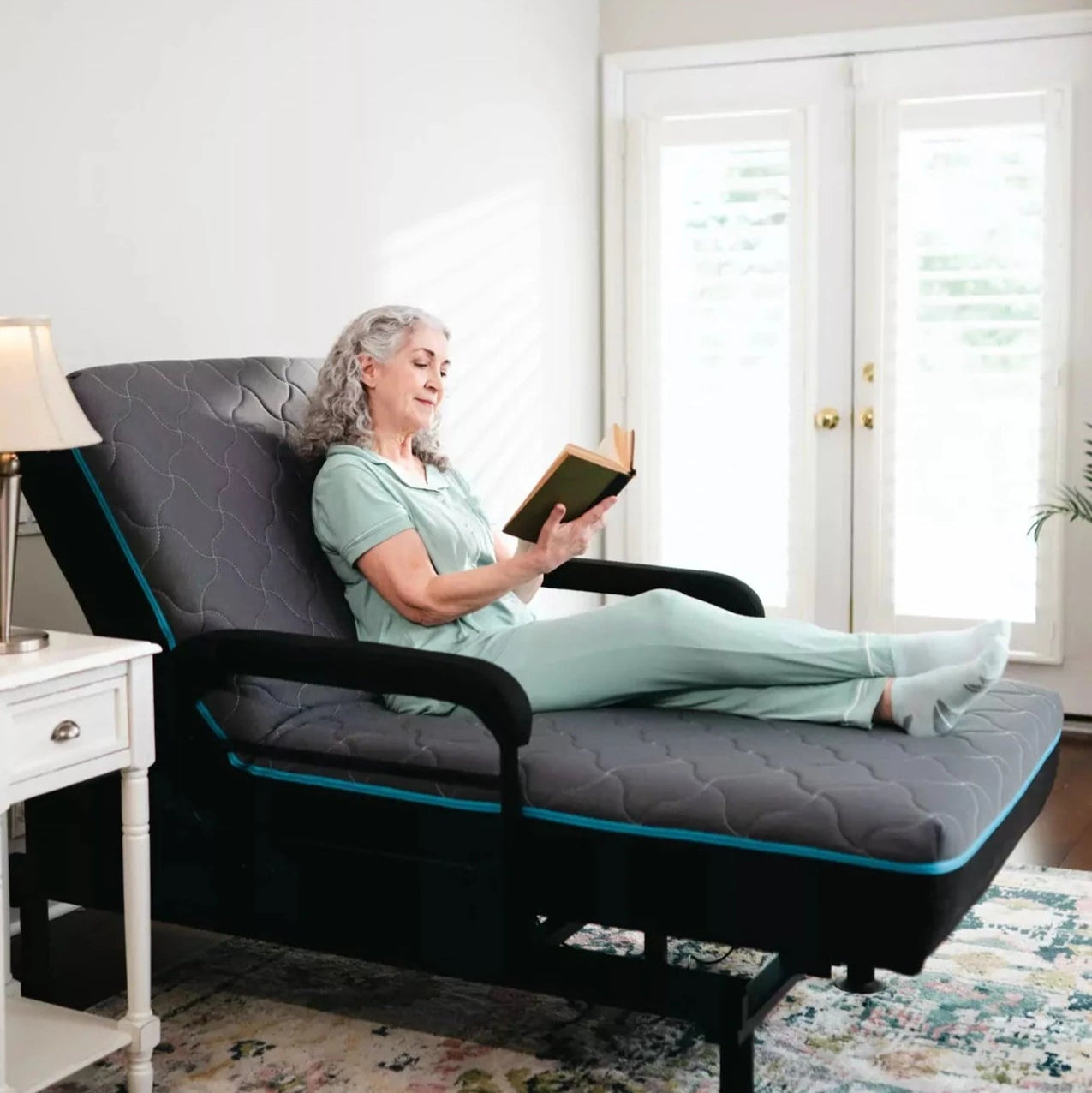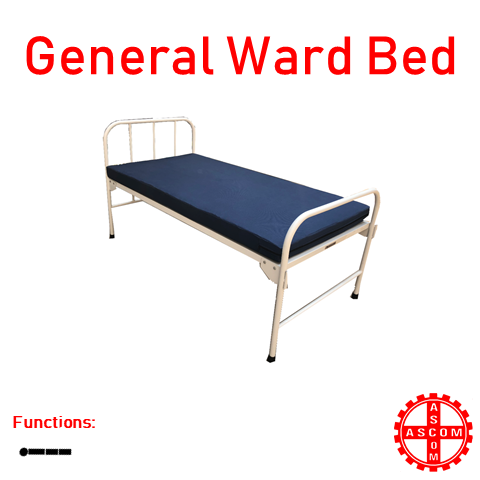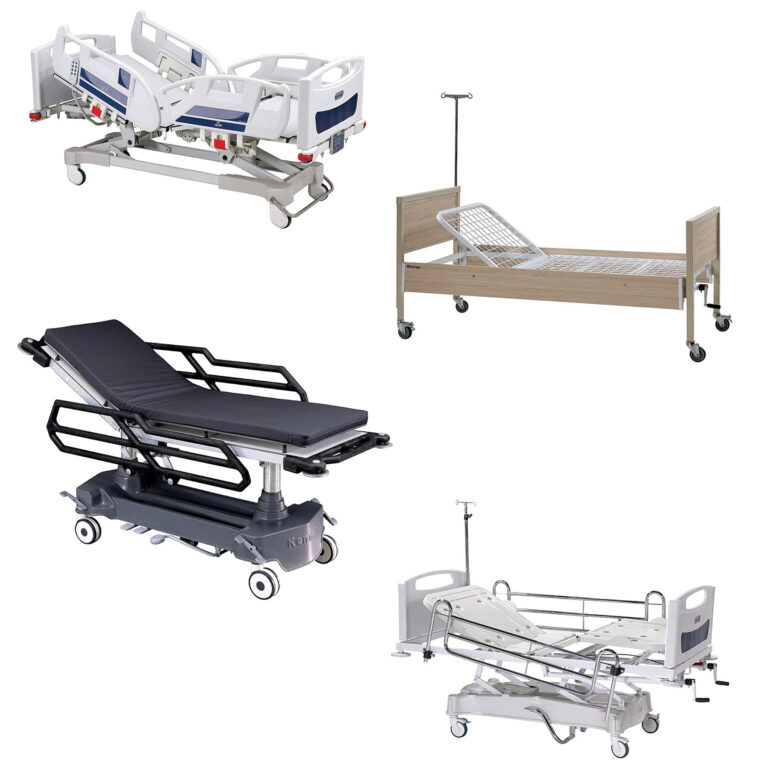Things about Hospital Beds For Home Use
Table of ContentsOur Hospital Beds For Home Use StatementsNot known Facts About Hospital Beds For Home UseThe 5-Minute Rule for Hospital Beds For Home UseSee This Report about Hospital Beds For Home UseThe Definitive Guide for Hospital Beds For Home UseLittle Known Questions About Hospital Beds For Home Use.Examine This Report on Hospital Beds For Home Use
There are three major kinds of health center beds: guidebook, semi-electric, and fully-electric. More types of medical beds exist and they are detailed below. These beds make use of hand cranks to change the bed's elevation and raise and lower the head and the foot. Hand cranks are typically discovered at the foot of the bed and require a person that is physically efficient in operating.
Semi-electric beds have an electric motor to increase and reduce the head and foot sections of the bed. Clients and caretakers readjust the positioning by pressing buttons using a hand pendant. The height of the bed is changed manually with a hand crank. Full-electric beds have an electric motor that can increase the head and foot sections of the bed as well as the whole elevation and positioning of the bed.
Things about Hospital Beds For Home Use
There are several kinds of healthcare facility beds, each developed to fulfill certain patient demands. Right here are some usual types: This is the most usual type of health center bed, developed for basic medical usage.
Reduced to the ground than a standard bed. This type of bed is created for bigger patients, with a larger framework and greater weight ability than a common bed.
This sort of bed is developed for seriously unwell people that need open surveillance and specialized clinical tools such as ventilators and mixture pumps. This kind of bed is created for usage throughout labor and distribution, with flexible placements and attributes to sustain the mother and baby during the birth procedure.
Getting The Hospital Beds For Home Use To Work
Numerous function and the accessories perform expanding grip to different parts of the vertebra and the extremities without relocating the human body. These are just a few instances of the kinds of healthcare facility beds readily available. The certain kind of bed made use of will depend on the patient's problem, clinical requirements, and other variables.
Here is things you require to know. A one-function hospital bed is a medical bed that permits a person to move only the head or foot section up or down. A 2 feature medical facility bed usually describes a kind of medical bed that has two flexible functions to assist patients in healthcare facilities or care centers.

The Best Guide To Hospital Beds For Home Use
A 7-function ICU bed is a kind of clinical bed that gives numerous flexible features to sustain seriously sick patients in a critical care unit (ICU) (hospital beds for home use). The 7 features generally include: Backrest modification: The backrest can be changed to different angles to help the client stay up or lie down easily
Elevation adjustment: The bed can be raised or lowered to make it less complicated for patients to obtain in and out of bed, and for caretakers to supply treatment. Trendelenburg setting: The entire bed can be tilted to advertise blood circulation and flow in the body. Reverse Trendelenburg setting: The bed can also be tilted in the contrary view publisher site instructions to promote blood circulation and flow in the top body.
While even more inexpensive than electric versions, these beds call for physical effort for adjustments. The major advantages of hand-operated beds are their cost and dependability, as they don't count on power. The requirement for hand-operated effort can be a limitation in scenarios where quick modifications are necessary or where caretakers face physical obstacles.
Our Hospital Beds For Home Use Diaries
They are fit for people who call for very little rearranging for comfort or clinical needs. Semi-electric hospital beds provide an equilibrium of guidebook and electric controls. The head and foot sections are normally adjusted with electric controls, while useful site the height is changed manually. These beds give an excellent happy medium in between handbook and totally electrical alternatives, offering simplicity of use without the complete cost of electric models.
Semi-electric beds are fit for individuals that require moderate adjustments to the head and foot sections but can manage without constant elevation modifications. This makes them an economical solution for those looking for comfort and convenience without the need for consistent repositioning. Completely electrical health center beds include electrical controls for seamless changes to the elevation, head, and foot sections.
Specialized health center beds, such as ICU beds, long-lasting care beds, and bariatric beds, are meticulously created to attend to particular medical requirements. These beds provide tailored look after diverse person teams, boosting both results and comfort. In the adhering to areas, we will certainly check out the main sorts of specialty medical facility beds, outlining their particular benefits and applications.
With years of experience in producing electrical direct actuators - hospital beds for home use and close partnership with the medical care market, TiMOTION is well-positioned to give reliable medical care services. Our up and down incorporated firm handles every step of the production process, from design to actuator setting up, guaranteeing we provide phenomenal value and tailored remedies tailored to your specific requirements
Hospital Beds For Home Use - An Overview

To read more about incorporating these modern technologies right into your products, call us today. Further reading:.
Data is sourced from the Medicare Price Record.

The Hospital Beds For Home Use Statements
A hospital bed is a bed made particularly for clinical functions. It is not only a place for clients to rest, however likewise a system for medical operations. Unlike ordinary home beds, medical facility beds typically have adjustable features, which can assist in medical personnel to make various modifications according to the needs of individuals, such as changing the height, inclination, and support angle of the back and legs of the bed.